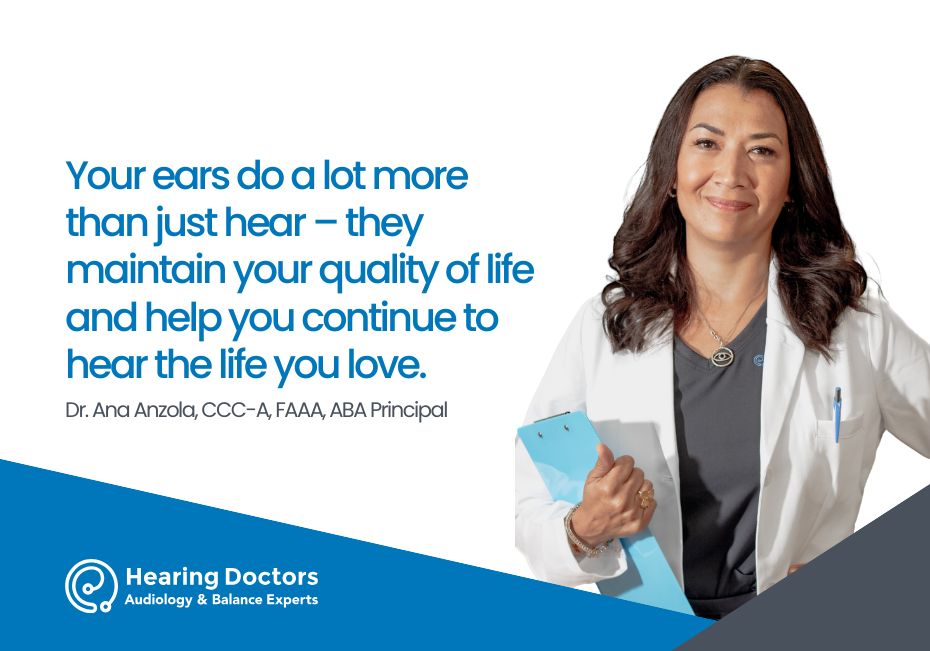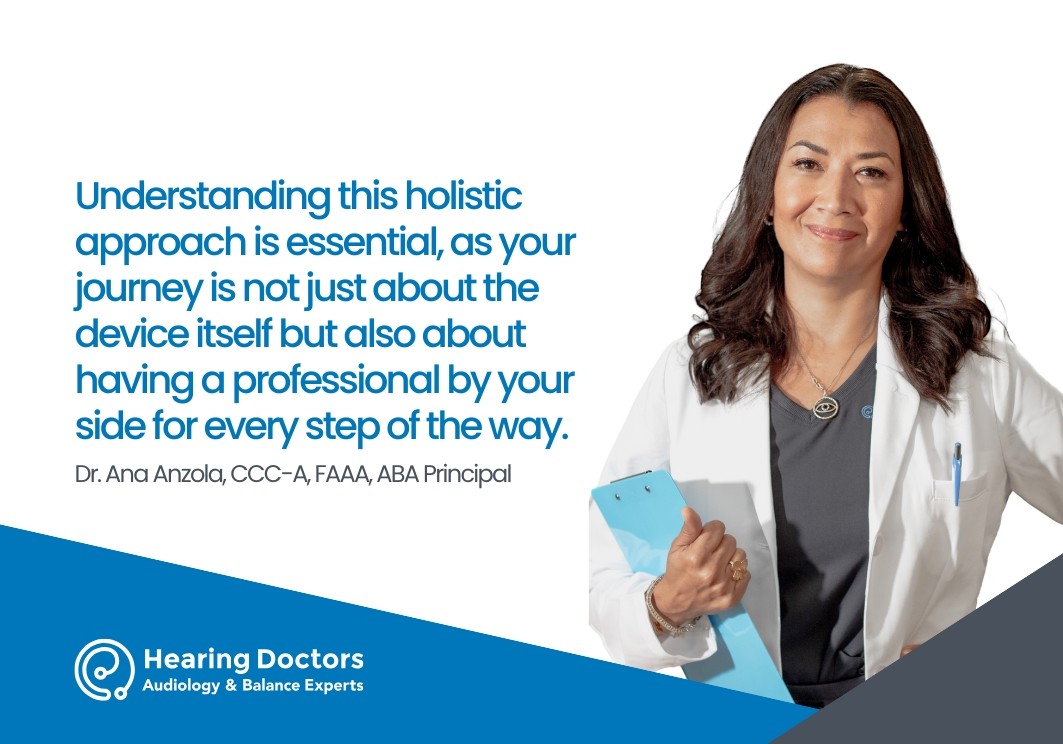Feb 27, 2024
Dr. Ana
Anzola, CCC-A, FAAA, ABA Principal
In recent years, there's been a noticeable trend: an increasing number of younger individuals have been seen wearing hearing aids. This shift has sparked curiosity and discussions about hearing health across all ages.
We're observing this trend closely, recognizing the positive implications it has for early intervention and hearing health awareness among the younger population.
Breaking the Age Stereotype
Traditionally, hearing aids have been associated with the elderly, a misconception that's rapidly changing. Today's reality tells a different story – one where hearing aids are not just for the older generations but for anyone who needs them, regardless of age.
The World Health Organization's projection that by 2050, nearly 2.5 billion people will have some degree of hearing loss underscores the universal nature of this challenge, affecting individuals young and old alike.
The Rise of Hearing Aid Adoption among the Youth
So, why are more younger people turning to hearing aids? Several factors contribute to this trend:
There's greater awareness about hearing health, thanks to educational efforts and the destigmatization of hearing loss and hearing aid use.
Modern hearing aids are not just for the older generations but for anyone who needs them, regardless of age. They offer features that appeal to the tech-savvy younger generation, such as Bluetooth connectivity and smartphone integration.
Younger individuals are becoming more proactive about their hearing health, using hearing aids as a preventive measure against further hearing loss, especially in noisy environments.
Recognizing the link between hearing loss, social isolation, and mental health issues, younger people are using hearing aids to stay connected and engaged with their social and professional lives.
How Hearing Doctors Supports the Younger Generation
Early intervention is key to managing hearing loss effectively. Our comprehensive hearing assessments and personalized care plans are designed to meet the unique needs of each individual, regardless of age. We offer the latest in hearing aid technology, ensuring our younger patients have access to devices that not only improve their hearing but also fit seamlessly into their active lifestyles.
The Benefits of Regular Hearing Assessments
For younger individuals, regular hearing assessments play a crucial role in maintaining optimal hearing health. These assessments can:
The Strength of Embracing Hearing Aids
The growing acceptance and use of hearing aids among younger people is a positive sign.
It indicates a shift toward prioritizing hearing health and embracing the solutions available to enhance quality of life. We celebrate this change and are here to support everyone on their journey to better hearing.
Ready to Take the Next Step?
If you or someone you know is experiencing hearing challenges, we're here to help.
Contact Hearing Doctors to schedule a comprehensive hearing assessment and explore the hearing solutions that best suit your lifestyle.
Together, we can ensure that hearing loss doesn't hold anyone back, regardless of age.
Popular Blogs

Jun 3, 2025
Dr. Ana
Anzola, CCC-A, FAAA, ABA Principal
Understanding Types of Hearing Loss: Sensorineural, Conductive, and Mixed

May 21, 2025
Dr. Ana
Anzola, CCC-A, FAAA, ABA Principal
What Impact Is Artificial Intelligence Having on Hearing Aid Technology?

Apr 28, 2025
Dr. Ana
Anzola, CCC-A, FAAA, ABA Principal
Do You Think You’re Too Young for Hearing Loss?

Apr 15, 2025
Dr. Ana
Anzola, CCC-A, FAAA, ABA Principal
The Best Hearing Aids in 2025: Insights From a Doctor of Audiology


